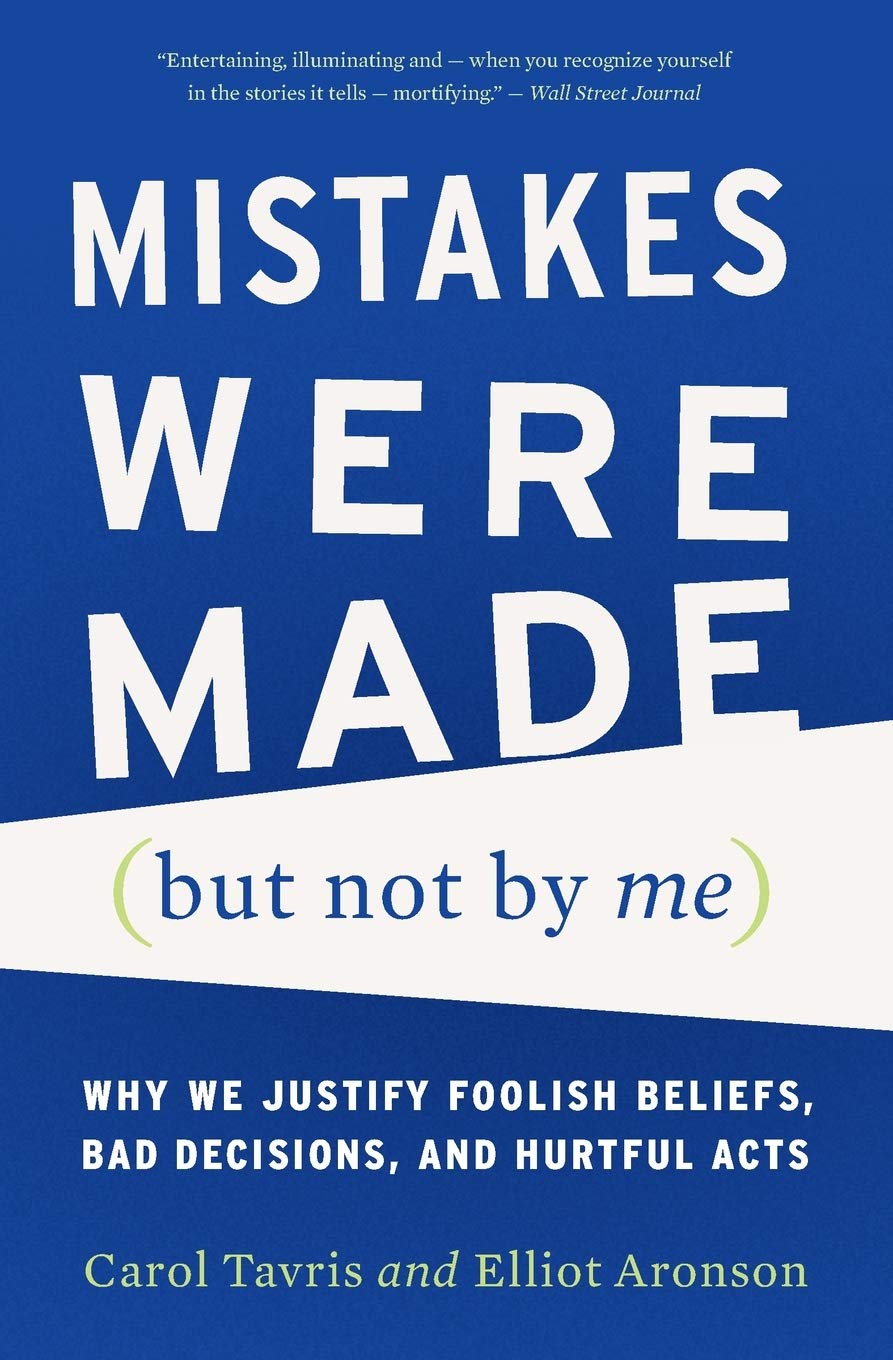Format: Paperback. You can purchase it on Amazon.com
- Publisher: Mariner Books
- Publication date: 2015
- Language: English
- Print length: 400 pages
- ISBN-13: 978-0544574786
The Hungarian edition was published by Ab Ovo Publishing in 2009 and can be purchased at Bookline.
Aronson and Tavris make an excellent authorial duo. With relentless thoroughness yet in a witty and engaging style, they present the results of their many years of social psychological research. The theory of cognitive dissonance was developed in the late 1950s by American social psychologist Leon Festinger. Its essence is that once a person makes a decision, they will grasp at any means to justify it—even at the cost of deceiving themselves and ignoring a host of facts that contradict the correctness of that decision. These contradictions cause anxiety, which people naturally try to reduce. And if, in the end, they still cannot justify their decision, they move on to shifting the blame onto someone else. A classic example of this is the war criminals’ excuse: “I was just following orders.”
The book is fascinating in that it draws examples from a wide range of societal domains. It covers recent cases, including ones from American political life. One lengthy chapter discusses the kinds of mistakes that judges and police officers can make—and how, once an investigator or prosecutor becomes convinced of a defendant’s guilt, they may become unwilling to even acknowledge evidence to the contrary.
Some of this may seem strange to Hungarian readers, as many of these issues are rarely discussed openly in our country. The authors’ American examples come from a society that is far more open. There, scandals and wrongdoing—whether in politics or the justice system—are more likely to be exposed quickly.
Of course, self-justification doesn’t just apply to the major decisions made by others. To some extent, we all need it. “It’s the guarantee of a good night’s sleep. Without it, doubt would torment us endlessly,” say the authors. A particularly insightful chapter deals with the role of self-justification in our private lives, especially within marriage.
As with all psychology books, readers soon find themselves applying what they’ve read to their own lives. And if we’ve grown a bit discouraged while reading, take heart! In the final chapter, the authors offer practical solutions—for us, as individuals.

